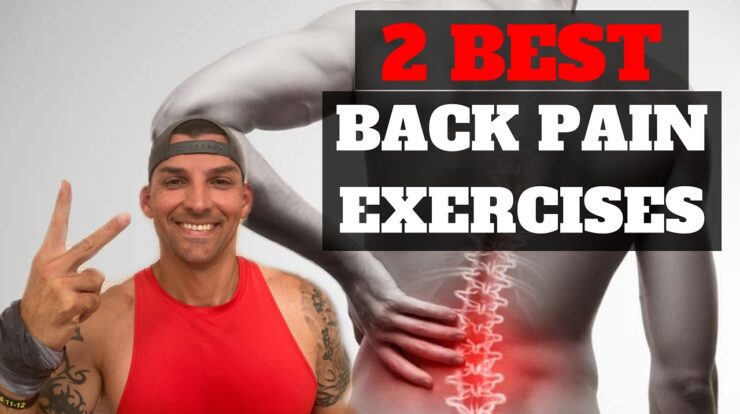
How to cure gum disease without a dentist – Yo, listen up! If your gums are giving you grief, don’t despair. You can cure gum disease without a dentist. Check out these sick home remedies, lifestyle tweaks, and natural approaches that’ll have your gums smiling again.
From herbal rinses to flossing like a boss, we’ve got you covered. So, grab a toothbrush and let’s get this party started!
Home Remedies and Natural Approaches

Gum disease is a common problem that can be caused by a variety of factors, including poor oral hygiene, smoking, and certain medical conditions. While there are a number of conventional treatments for gum disease, there are also a number of home remedies and natural approaches that can be effective in treating and preventing this condition.
Some of the most effective home remedies for gum disease include:
- Oil pulling: This is an ancient Ayurvedic technique that involves swishing oil in your mouth for 15-20 minutes each day. Oil pulling helps to remove bacteria and toxins from the mouth, and it can also help to reduce inflammation and bleeding gums.
- Salt water rinse: This is a simple and effective way to reduce inflammation and pain in the gums. Simply dissolve 1/2 teaspoon of salt in 1 cup of warm water and rinse your mouth with it for 30 seconds, twice a day.
- Baking soda rinse: Baking soda is a natural antiseptic and anti-inflammatory agent. To make a baking soda rinse, dissolve 1/2 teaspoon of baking soda in 1 cup of warm water and rinse your mouth with it for 30 seconds, twice a day.
- Green tea: Green tea contains polyphenols, which are antioxidants that can help to reduce inflammation and bleeding gums. To make a green tea rinse, brew 1 cup of green tea and let it cool. Then, rinse your mouth with it for 30 seconds, twice a day.
- Aloe vera: Aloe vera is a natural anti-inflammatory and antibacterial agent. To use aloe vera for gum disease, apply a small amount of aloe vera gel to your gums and massage it in gently. You can also rinse your mouth with aloe vera juice, twice a day.
In addition to these home remedies, there are also a number of natural supplements that can be helpful in treating gum disease. These supplements include:
- Vitamin C: Vitamin C is an antioxidant that helps to strengthen the immune system and reduce inflammation. It is also essential for the production of collagen, which is a protein that helps to keep the gums healthy.
- Vitamin D: Vitamin D is important for bone health, but it can also help to reduce inflammation and bleeding gums. It is also essential for the production of cathelicidin, which is a protein that helps to protect the gums from infection.
- Probiotics: Probiotics are live bacteria that can help to improve the balance of bacteria in the mouth. This can help to reduce inflammation and bleeding gums.
If you are considering using any of these home remedies or natural supplements for gum disease, it is important to talk to your doctor or dentist first. They can help you to determine which treatments are right for you and to make sure that you are using them safely and effectively.
Oral Hygiene Practices
Maintaining proper oral hygiene is crucial for preventing and treating gum disease. Here are some essential practices to follow:
Brushing:Brush your teeth twice a day, using a soft-bristled toothbrush and fluoride toothpaste. Brush in gentle circular motions, covering all surfaces of your teeth, including the gum line. Aim to brush for at least two minutes each time.
Flossing:Flossing removes plaque and bacteria from between your teeth, where your toothbrush can’t reach. Floss at least once a day, using a floss threader if necessary to reach tight spaces. Gently slide the floss between your teeth, moving it up and down to remove any debris.
Interdental Brushes
Interdental brushes are small, cone-shaped brushes that can help remove plaque and debris from between your teeth and around your braces or other dental appliances. They are particularly useful for people with large gaps between their teeth or difficulty flossing.
Water Flossers
Water flossers use a stream of water to remove plaque and debris from between your teeth. They are a good option for people with sensitive gums or who have difficulty using traditional floss.
Regular Dental Checkups and Cleanings
Regular dental checkups and cleanings are essential for maintaining good oral hygiene and preventing gum disease. Your dentist will examine your teeth and gums, remove plaque and tartar, and provide you with personalized advice on how to improve your oral hygiene routine.
Dietary Considerations
Eating the right foods can help keep your gums healthy and strong. Here are some foods and nutrients to include in your diet:
Vitamin C:This vitamin is essential for collagen production, which is a protein that helps keep your gums strong and healthy. Good sources of vitamin C include citrus fruits, berries, and leafy green vegetables.
Yo, check it! You got some gum problems? Don’t trip, cuz we got you covered. Hit up this sick site that’ll show you how to fix your gums without dropping a dime at the dentist. They got all the tricks and tips you need to get your smile back on point.
Vitamin A:This vitamin helps protect your gums from infection. Good sources of vitamin A include carrots, sweet potatoes, and spinach.
Vitamin D:This vitamin helps your body absorb calcium, which is essential for strong bones and teeth. Good sources of vitamin D include fatty fish, eggs, and fortified milk.
Yo, got some gum disease? Don’t trip, you can handle this at home. Check this out, how to cure gum disease without a dentist . It’s like, all the tips you need to get your gums back on fleek. Get ready to floss like a boss and say goodbye to that nasty gum disease.
Calcium:This mineral helps keep your teeth and bones strong. Good sources of calcium include dairy products, leafy green vegetables, and fortified foods.
Fiber:Fiber helps keep your teeth clean by removing plaque and bacteria. Good sources of fiber include fruits, vegetables, and whole grains.
Foods to Avoid, How to cure gum disease without a dentist
Some foods can damage your gums and make gum disease worse. These foods include:
- Sugary foods:Sugar feeds the bacteria in your mouth, which can lead to plaque and gum disease.
- Acidic foods:Acidic foods can erode your tooth enamel and make your gums more vulnerable to infection.
- Sticky foods:Sticky foods can get stuck in your teeth and provide a breeding ground for bacteria.
Lifestyle Modifications

Yo, check it, your lifestyle can mess with your gums too. We’re talking about smoking, stress, and sleep, all of which can make your gums go bonkers.
First up, let’s talk about smoking. It’s like the worst thing you can do for your gums. Smoking weakens your immune system, making it harder for your body to fight off gum disease. Plus, it damages the blood vessels in your gums, which means they don’t get the nutrients they need to stay healthy.
Stress and Sleep
Stress and sleep are two other biggies. When you’re stressed, your body releases hormones that can break down your gums. And when you don’t get enough sleep, your body doesn’t have time to repair itself, which can lead to gum problems.
Yo, got gum disease and don’t wanna drop mad cash on a dentist? Check this out, bruh. This guide’s got the lowdown on how to cure gum disease without a dentist. Yeah, you heard it, no need to floss like a maniac or get your teeth drilled.
Just click here and get the scoop on how to get your gums back on point without breaking the bank. Peace out, homies!
So, what can you do about it? For smoking, the best thing is to quit. It’s not easy, but it’s worth it for your gums and your overall health. For stress, try finding ways to relax, like exercise, yoga, or meditation.
And for sleep, make sure you’re getting at least 7-8 hours of shut-eye every night.
Yo, listen up! If your gums be actin’ up, don’t sweat it. Check out how to cure gum disease without a dentist . It’s the bomb! You’ll be flossin’ like a boss and rockin’ healthy gums in no time, playa.
Advanced Treatments
Gum disease can be treated with advanced dental procedures beyond basic home remedies and lifestyle changes. These treatments aim to remove bacteria, reduce inflammation, and restore gum health.
Minimally Invasive Procedures
Scaling and root planing are non-surgical procedures that involve removing plaque and tartar from tooth surfaces and below the gum line. This helps reduce bacteria and inflammation, promoting gum healing.
Laser Therapy and Ozone Therapy
Laser therapy uses a concentrated beam of light to kill bacteria and stimulate tissue regeneration. Ozone therapy involves administering ozone gas to the affected area, which has antibacterial and anti-inflammatory properties. Both techniques can complement scaling and root planing.
Surgical Interventions
In severe cases, surgical interventions may be necessary. Flap surgery involves lifting the gum tissue to access and clean the root surfaces. Bone grafting may be used to repair damaged or lost bone tissue, supporting the teeth and preventing further bone loss.Surgical
interventions carry potential risks, such as pain, bleeding, and infection. However, they can be highly effective in treating advanced gum disease and restoring oral health.
Wrap-Up

So, there you have it, fam. Curing gum disease without a dentist is totally doable. Just remember to brush and floss regularly, eat right, and ditch the bad habits. Your gums will thank you for it.
Q&A: How To Cure Gum Disease Without A Dentist
How often should I brush my teeth?
Twice a day, homie. Once in the morning and once before you hit the hay.
Is flossing really that important?
Heck yeah! Flossing gets rid of the gunk between your teeth that brushing can’t reach.
What foods are good for my gums?
Fruits, veggies, and whole grains are your gum’s best friends. They’re packed with vitamins and minerals that keep your gums strong.





